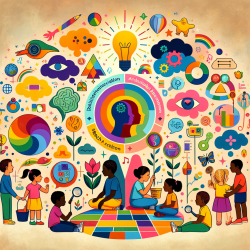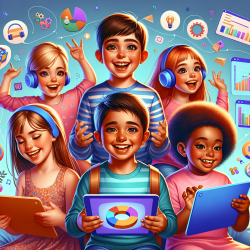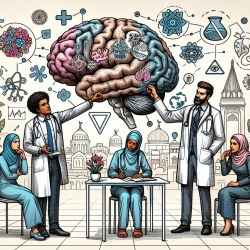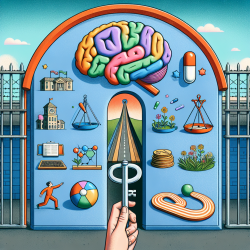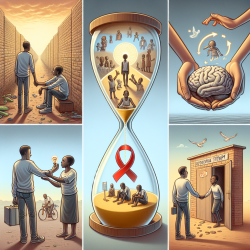In the realm of speech-language pathology, data-driven decisions are paramount to achieving optimal outcomes for children. A recent study titled "Preventing Internalizing Problems in Young Children: A Randomized Controlled Trial of the Feelings and Friends (Year 3) Program with a Motor Skills Component" offers valuable insights for practitioners aiming to enhance their intervention strategies. This blog post will delve into the key findings of the study and discuss how these can be implemented to improve mental health outcomes for children.
Understanding Internalizing Problems in Children
Internalizing disorders, such as anxiety and depression, are prevalent among children and can have far-reaching impacts on their emotional and social development. Early intervention is crucial as it can mitigate the severity and long-term consequences of these disorders. The Feelings and Friends (Year 3) program (FFY3) integrates social-emotional learning with motor skills activities, aiming to provide a comprehensive approach to preventing internalizing problems.
Key Findings from the Study
The study involved 24 children from the Perth metropolitan area and assessed the efficacy of the FFY3 program over a 9-week period. The primary outcomes measured included child-reported depression and anxiety, parent-reported child depression and anxiety, and overall psychological adjustment. The key findings are as follows:
- Significant reduction in parent-reported child depression with a moderate effect size.
- Reduction in parent-reported separation anxiety, externalizing symptoms, and conduct problems.
- No significant short-term or 3-month follow-up effects for child-reported depression and anxiety.
Implications for Practitioners
These findings suggest that the FFY3 program is effective in reducing certain internalizing and externalizing symptoms, particularly those reported by parents. Practitioners can leverage these insights in several ways:
- Incorporate Motor Skills Activities: Including motor coordination activities in therapy sessions can enhance the overall effectiveness of interventions targeting internalizing disorders.
- Focus on Parent-Reported Outcomes: Given the significant reductions observed in parent-reported symptoms, involving parents in the intervention process can be beneficial.
- Consider Long-Term Follow-Up: While short-term effects were not significant for child-reported outcomes, longer-term follow-up may yield more substantial results. Practitioners should consider extending the duration of follow-up assessments.
Encouraging Further Research
The study highlights the need for further research to confirm the efficacy of the FFY3 program and to explore the impact of motor coordination activities. Practitioners are encouraged to contribute to this growing body of research by implementing similar interventions and documenting their outcomes.
Conclusion
The Feelings and Friends (Year 3) program presents a promising approach to addressing internalizing and externalizing symptoms in young children. By integrating social-emotional learning with motor skills activities, practitioners can enhance the effectiveness of their interventions and contribute to better mental health outcomes for children.
To read the original research paper, please follow this link: Preventing Internalizing Problems in Young Children: A Randomized Controlled Trial of the Feelings and Friends (Year 3) Program with a Motor Skills Component.
